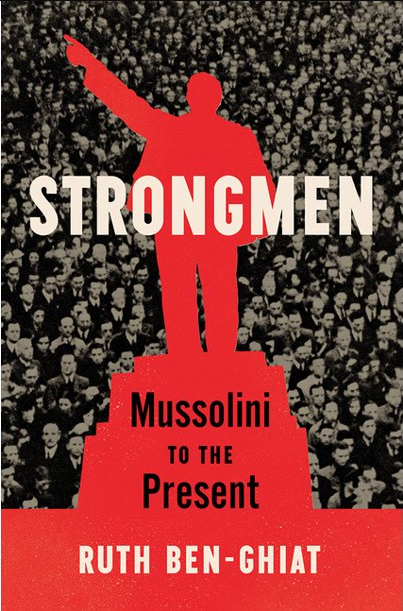Chris Bray considers the arguments made by Ruth Ben-Ghiat that ropes every “strongman” together into a single, coherent strategy that applies at all times and under all circumstances:
Holocaust scholars have always argued from every possible perspective, and will always argue from every possible perspective, about causation. There’s a school gathered around “No Hitler, no Holocaust”, and there’s Zygmunt Bauman, who barely mentions the man in an argument about the inherently dehumanizing tendencies of the modern bureaucratic state. Christopher Browning depicts a battalion of Order Police participating in state-organized mass killing because of cowardice, habitual obedience, and social compliance; Daniel Goldhagen replies that no, Germans killed Jews because Germans hated Jews, full stop. But in this extraordinary diversity of voices, there is argument. If you ask, why did this happen?, many answers follow — growing out of questions about the operation of power, the limits of moral agency, the basic human willingness to comply, and so on, that aren’t easy to answer.
Then comes 21st century American political scholarship.
Here’s how the publisher explains this book:
Ruth Ben-Ghiat is the expert on the “strongman” playbook employed by authoritarian demagogues from Mussolini to Putin—enabling her to predict with uncanny accuracy the recent experience in America and Europe. In Strongmen, she lays bare the blueprint these leaders have followed over the past 100 years, and empowers us to recognize, resist, and prevent their disastrous rule in the future …
Vladimir Putin and Mobutu Sese Seko’s kleptocracies, Augusto Pinochet’s torture sites, Benito Mussolini and Muammar Gaddafi’s systems of sexual exploitation, and Silvio Berlusconi and Donald Trump’s relentless misinformation: all show how authoritarian rule, far from ensuring stability, is marked by destructive chaos.
All that stuff is the same, see, “from Mussolini to Putin”. Pinochet and Berlusconi are the same, Russia and Italy are the same, new postcolonial nations and old reborn nations are the same, resource economies and service economies are the same, 1922 is 2016, modern culture is postmodern culture, mass media is social media — all in a blended mass of social reality and cultural factors, turning the March on Rome and mean tweets into the same “playbook”, which is also the same “blueprint”.
What caused the Bolshevik revolution? Lenin said so. What caused the Holocaust? Hitler said so. Why was there political violence in Chile? Pinochet said so. You can see the richness and complexity of single-actor history with blueprints and playbooks.
Turning the urgent precision of this analysis to the task of understanding contemporary politics, scholars know that Trump’s personality is very bad, but is DeSantis more badderer in the badness of his mean and bad personality? Does he use the playbook, exactly like Lenin and Mobutu Sese Seko? Is he running Florida just like the Congo? (Is Kristi Noem precisely identical to Joe Stalin, Idi Amin, and Tiberius? Depends on how she does in the primaries.)
It’s politics without politics, stripped of systems, processes, principles, historical uniqueness, geographic and economic factors, and competing forces in culture and society. Political power is a weight falling off a table onto a lever; the leader acts, his instruments are acted upon, and the machine of society moves according to the force and direction applied by the leader. Is it significant that our particular political moment is postindustrial, urbanizing, and increasingly made up of social and economic interactions mediated through an electronic screen? No, Trump is using Lenin’s playbook. Politics is all the same, and entirely about names and personalities.




